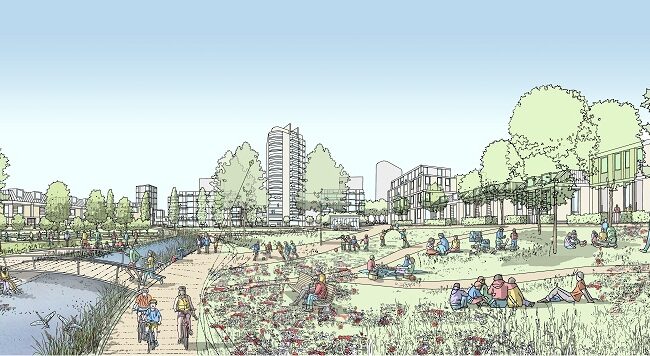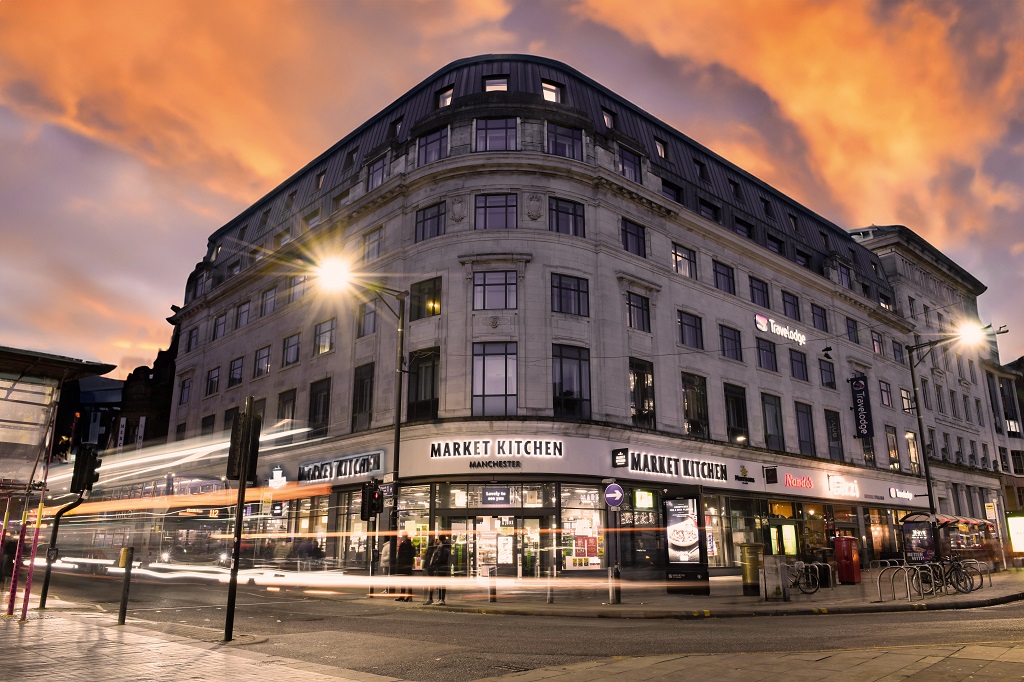Civic Engineers looks beyond lockdown with climate charter
Manchester-based Civic Engineers has published a climate charter, emphasising the importance and commercial value of the sustainable design agenda.
The charter comes as the engineering sector faces uncertainty as it navigates the challenges of Covid-19, and questions over what the ‘new normal’ might look like once lockdown restrictions are lifted.
Stephen O’Malley, founding director of Civic Engineers said: “The huge challenge of today’s coronavirus situation is prompting fundamental questions about what our future lifestyles and society could be like.
“One of the most fascinating consequences of more people being at home and less likely to travel by car, is the way in which they are using their daily exercise allowance to explore immediate surroundings.
“This is leading to many people discovering and enjoying their neighbourhoods in a way that they have never previously considered, something that is much more attractive when areas are not dominated by cars.
“How we turn such behaviours into life-long habits, ensuring a positive impact on the environment as well as individual health and wellbeing, is a critical question for everybody right now.”
The five principles of the Civic Engineers’ climate charter are:
- Exploring not exploiting – promoting modes of active travel and spatial planning that are rooted in nature and involve ideally located amenities and facilities that encourage healthy lifestyles
- Building not destroying – supporting mixed-use urban developments that reduce reliance on the private car and avoid unnecessary development on remote and valuable greenfield sites
- Reusing not just using – prioritising reuse and adaptions of existing building structures and infrastructure over demolition and replacement, to minimise carbon expenditure
- Listening and learning – pairing technical excellence with emotional intelligence to design buildings and environments through a truly collaborative process that is informed by the needs of people, community interests, policies and priorities
- Creating a lasting legacy – exploration and use of upcycled materials and nature-based solutions, including the promotion of green and blue infrastructure into all designs, to encourage biodiversity and resilience against environmental extremes
According to Paul Morris, director at Civic Engineers in Manchester, some of the charter principles have already guided the practice’s work previously in the city.
He said: “We have a significant opportunity to make an impact across civil, structural and transport sectors due to our work in these areas, so realised we can have a real influence.
“The charter isn’t about changing the way we operate, it is a way we have always worked. A good example is at Piccadilly Basin, which we’ve advised Town Centre Securities on over the past decade, where we have been repurposing the infrastructure, as there is no better way of reducing carbon in a development than repurposing existing buildings and infrastructure. This started with the canal network then later included the refurbishment of Jackson’s Warehouse and Carver’s warehouse.
“We are now working with Far East Consortium up in Collyhurst to look at their delivery of new homes, using different construction methods, reducing embodied carbon in buildings, increasing cycling and green infrastructure, and looking at climate change as well as climate resilience.
“As an industry, coronavirus has forced us to refocus, and once it passes will mean we need to bring climate change back to the forefront, in advance of legislation which will change the way we work and how clients assess costs.”
Other Civic Engineers schemes include the Leeds Climate Innovation District with developer Citu, to address the civil, structural and transport engineering challenges of creating a £250m car-free, zero carbon neighbourhood in the city centre.
A similar project is Glasgow Avenues, a £115m Glasgow City Deal-funded initiative which is focused on transforming city centre streets by improving connectivity, introducing green infrastructure and enhancing biodiversity.




